Are you considering canceling your maintenance service and feeling unsure about how to approach it? You're not alone; many people find themselves in this situation and need a straightforward way to communicate their decision. Crafting a clear and polite cancellation letter can help maintain a good relationship with the service provider while also ensuring your request is processed smoothly. Let's dive into the essentials of writing an effective maintenance service cancellation letter that reflects your intentions and keeps things professional.
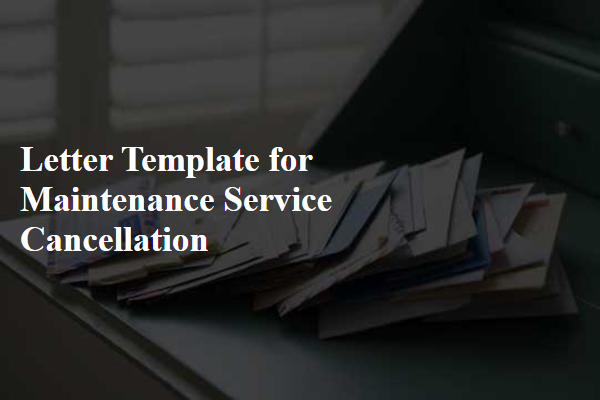
Customer information (name, address, contact details).
Customer information must be clearly organized to facilitate communication. The name should include the full legal name, ensuring accurate identification. Address details should comprise the street number, street name, city, zip code, and state for precise location reference. Contact details encompass a mobile phone number and an email address, both vital for any follow-up or confirmation regarding the service cancellation. This structured presentation aids in prompt processing of the maintenance service cancellation request.
Service details (account number, type of service).
To cancel a maintenance service, account number 123456789, which involves regular HVAC system inspections at a residential property located at 456 Maple Street, the customer must provide a written request. The HVAC (Heating, Ventilation, and Air Conditioning) service is scheduled every three months, ensuring optimal performance and energy efficiency. Cancellation notice should ideally be submitted at least 30 days prior to the next scheduled visit to avoid further charges or complications. This provides the service provider time to update their records and adjust scheduling accordingly. Ensure all relevant details are clearly stated in the request, including any specific reasons for cancellation if necessary.
Cancellation reason (brief explanation, optional).
A maintenance service cancellation often relates to various reasons impacting the client's schedule or requirements. Changes in financial priorities, such as unexpected expenses or budget cuts, often necessitate this decision. Relocation to a new area may also prompt clients to seek new providers, impacting ongoing commitments. Health-related issues can further complicate the ability to maintain appointments, leading clients to reevaluate their service needs. Additionally, dissatisfaction with previous service quality (for instance, inadequate response times or unfulfilled promises) frequently influences cancellation choices. Each client's situation is unique, deserving thoughtful consideration.
Effective cancellation date.
To cancel a maintenance service effectively, ensure to provide the specific cancellation date. For instance, informing the service provider of the cancellation to take effect on December 1, 2023 is crucial for proper documentation. Include essential details such as the service agreement number and contact details to streamline communication. Timely notification (ideally 30 days prior) allows proper adjustments and avoids potential fees. Delivering the notice via registered mail or email ensures receipt confirmation.
Request for confirmation of cancellation (email or document).
A maintenance service cancellation requires formal acknowledgment to ensure all parties are aligned. When a client decides to terminate their agreement with a service provider, it is vital to send a cancellation request as an official email or document. This communication should include key details such as the client's name, service provider's name, service type (e.g., home appliance maintenance), and the effective cancellation date. Additionally, any specific reasons for cancellation (e.g., financial constraints, relocation, or service dissatisfaction) may be noted for clarity. Furthermore, requesting a confirmation of receipt from the service provider ensures proper documentation of the cancellation process, which may be essential for future references or dispute resolutions. This practice promotes transparency and reinforces the importance of maintaining accurate records in service agreements.
Letter Template For Maintenance Service Cancellation Samples
Letter template of maintenance service cancellation due to dissatisfaction.
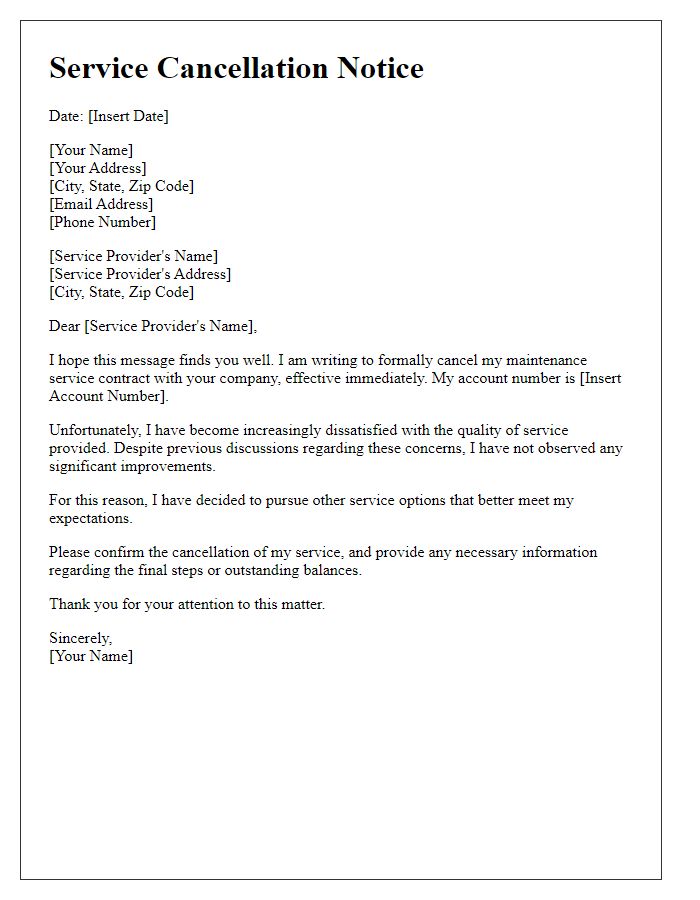
Letter template of maintenance service cancellation for financial reasons.
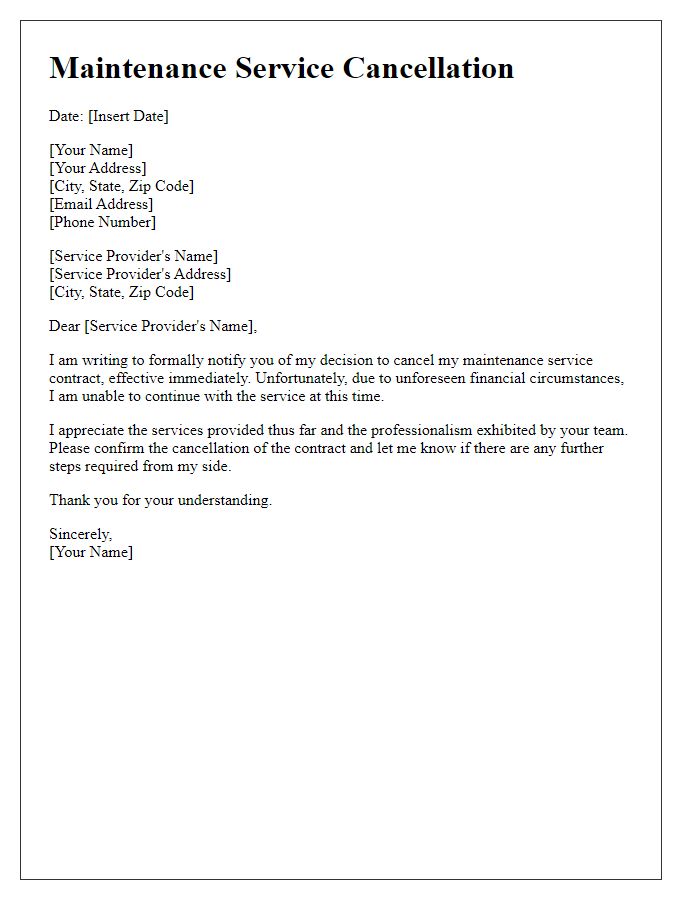
Letter template of maintenance service cancellation because of relocation.
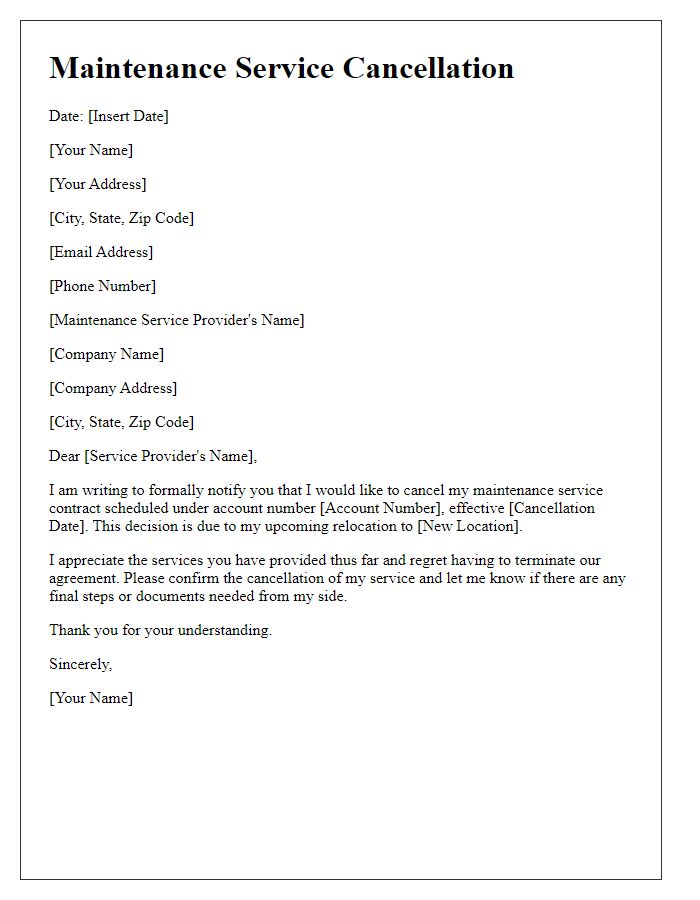
Letter template of maintenance service cancellation for contract expiration.
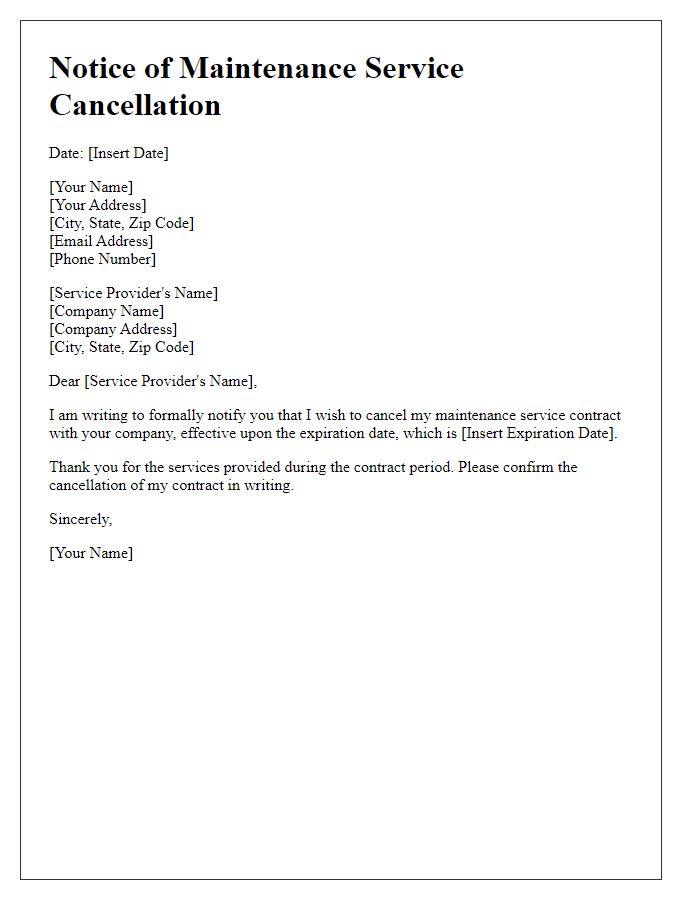
Letter template of maintenance service cancellation citing lack of communication.
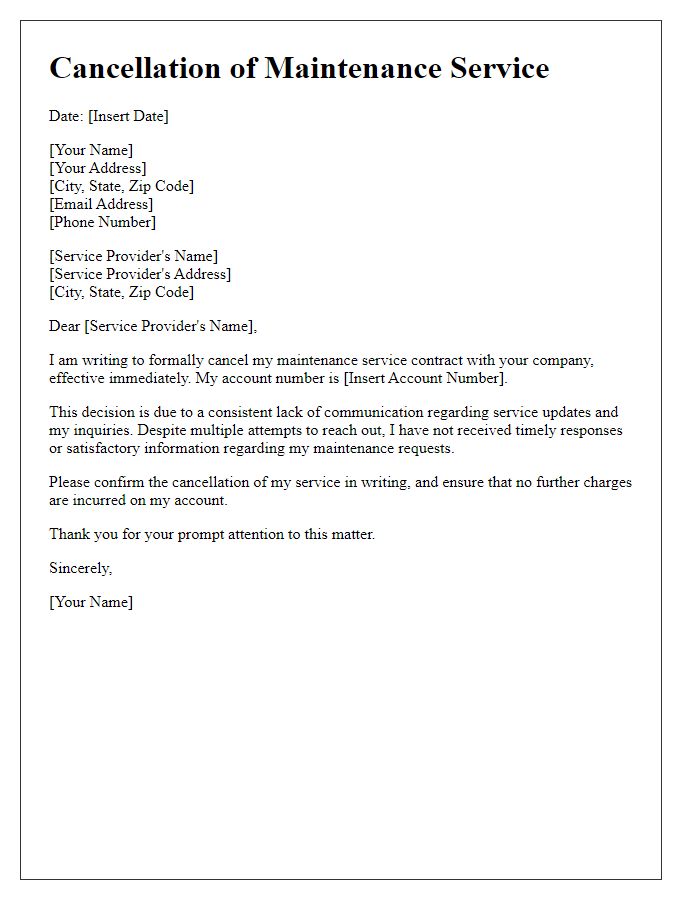
Letter template of maintenance service cancellation due to prolonged service delays.
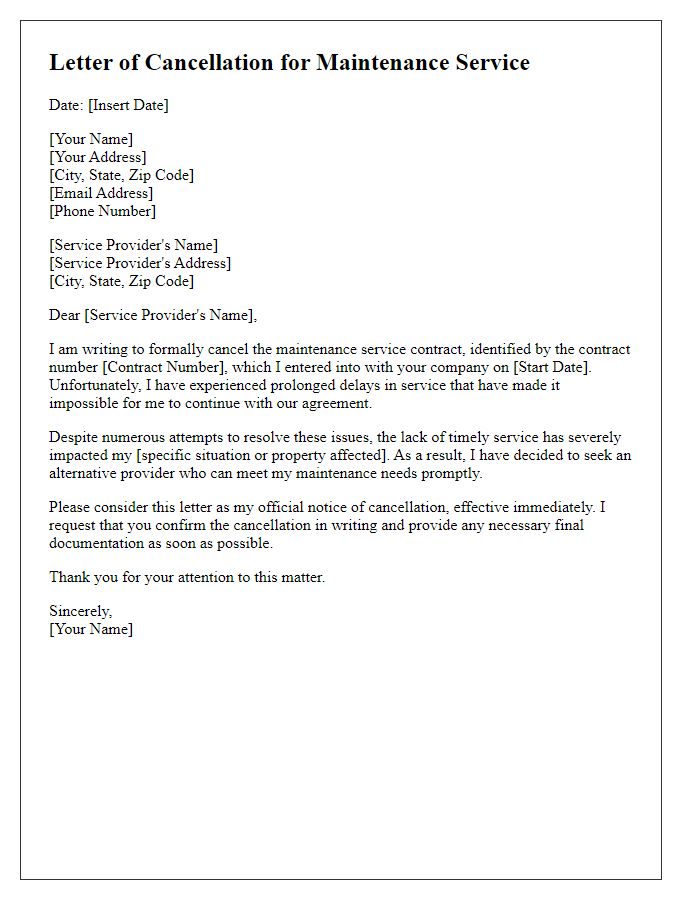
Letter template of maintenance service cancellation for personal circumstances.
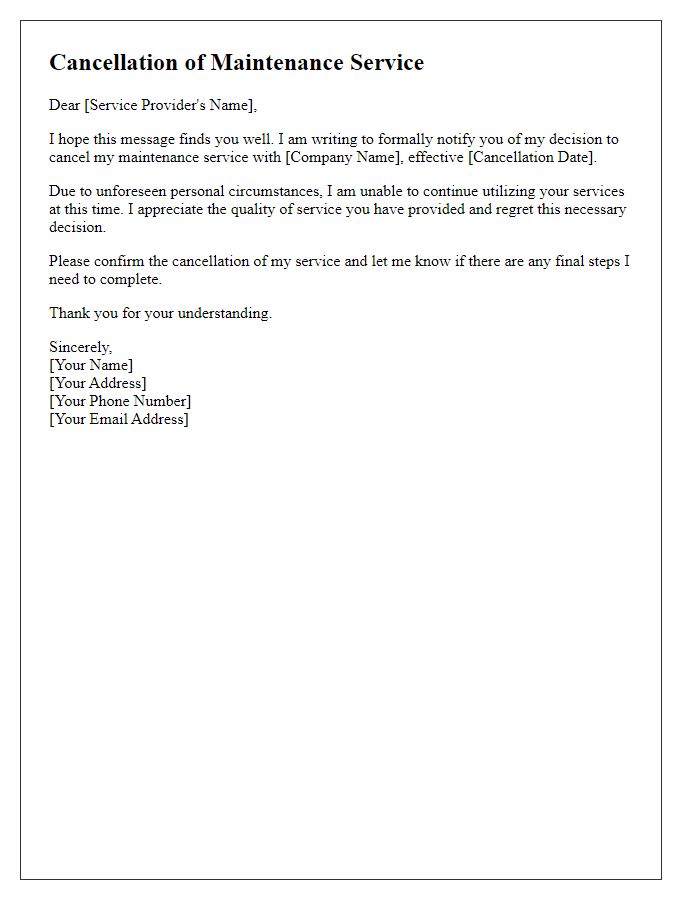
Letter template of maintenance service cancellation after service agreement review.
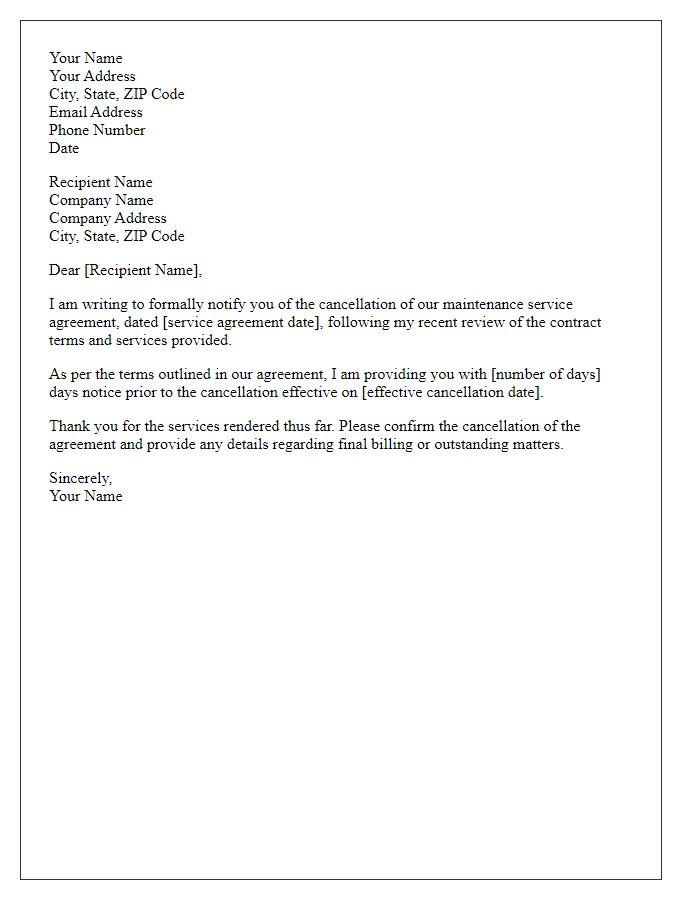
Letter template of maintenance service cancellation as a result of service redundancy.
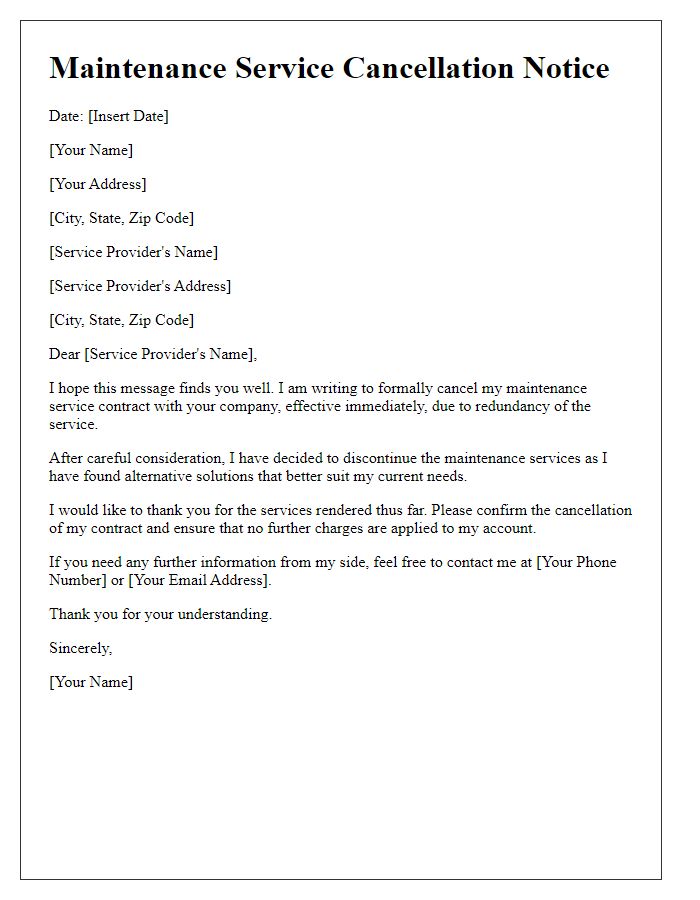

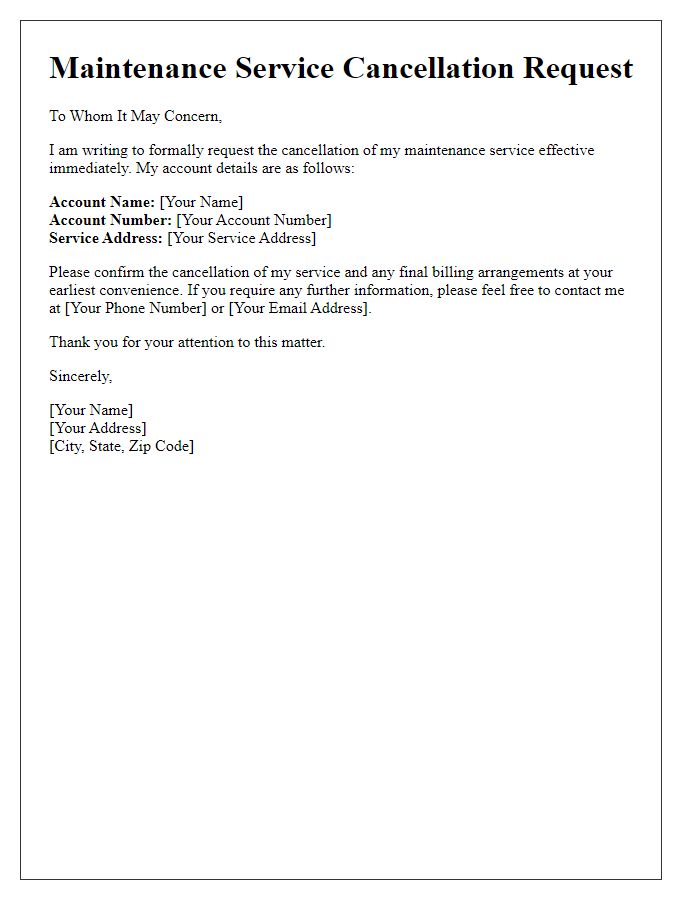

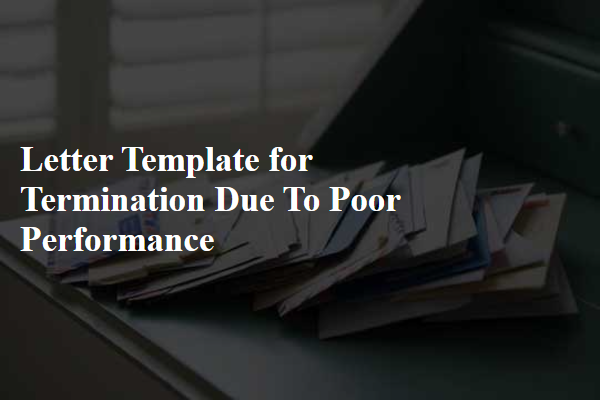
Comments